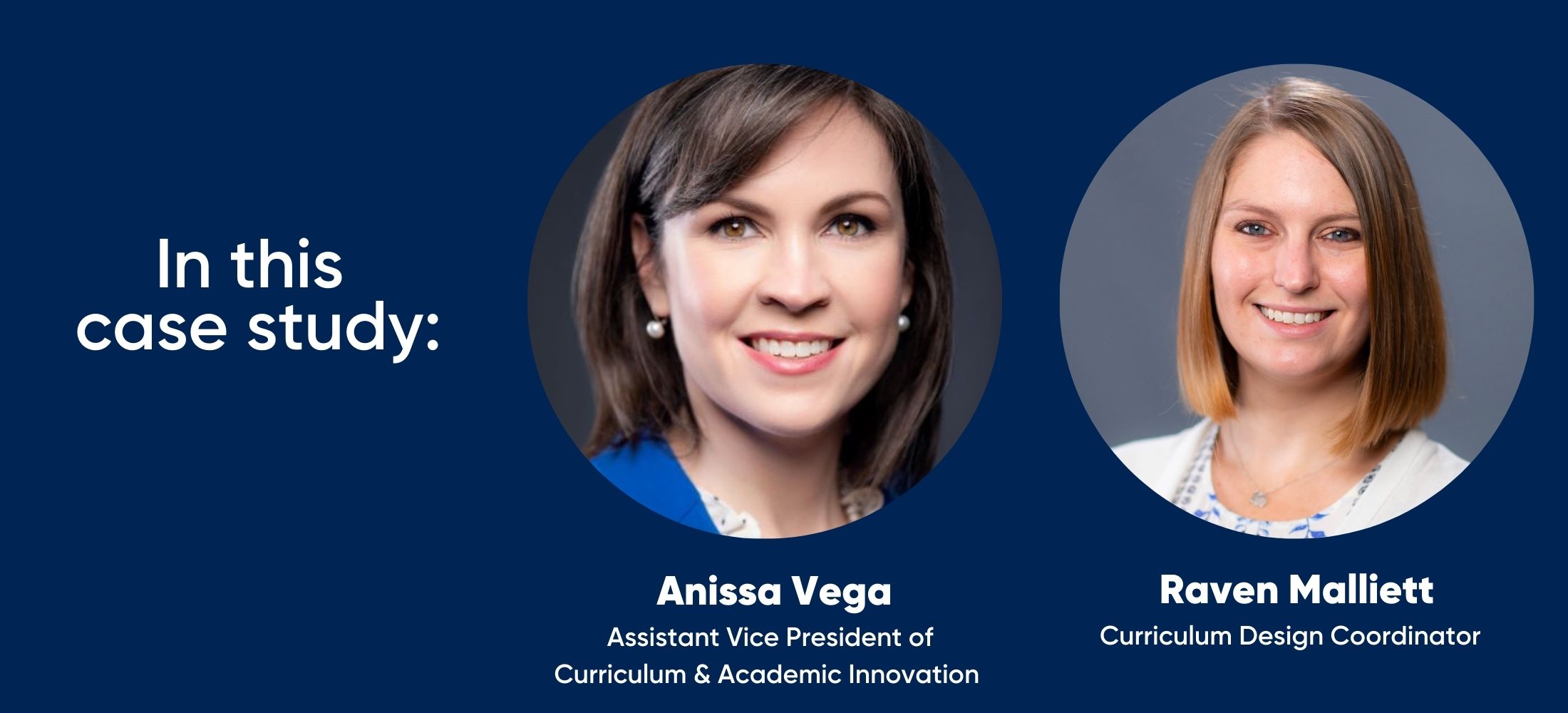About Kennesaw State University
6
departments offering micro-credentials
26
micro-credentials offered institution-wide
387
students and faculty/staff who are pursuing or who have earned a micro-credential
Modern Campus Curriculum helps us bring everyone together from all of the different silos across campus. It helps us collect the critical information for each micro-credential and make sure that the review process is transparent.
Anissa VegaThe Challenge
Micro-credentialing at Kennesaw State University was initially an independent initiative that faculties and departments across the institution were exploring independently. This led to two distinct challenges.
First, each different department was using a different technological solution to manage its digital and micro-credentials.
“We had multiple tools in use across campus and the institution was paying for a variety of micro-credentialing solutions,” said Anissa Vega, Assistant Vice President for Curriculum and Academic Innovation. “Our university I.T. services group wanted to support a single micro-credentialing tool for efficiency’s sake.”
Second, with so many different tools in use—and so many different processes to manage the programming—the credentials themselves lacked consistency in terms of branding and rigor. As a result, it was difficult for Kennesaw State to clearly define the value of their micro-credentials.
We needed something that ensured rigor and trust but also helped make our brand recognizable, such that when employers see our micro-credentials, they would know they can trust them because there would be something similar happening in their visual identity,
Anissa VegaThe Solution
To deliver consistency and trust in the rigor of the academic product, Kennesaw State used Modern Campus Curriculum to drive the approval process for new micro-credentials.
“We wanted micro-credentialing resources to be centrally allocated,” said Raven Malliett, Curriculum Design Coordinator. “These credentials have our institutional name on them now, not just a unit's name. We wanted to ensure they're all at the same level of rigor.”
Kennesaw State saw numerous benefits from shifting the central approval system for new micro-credentials into Modern Campus Curriculum. The major benefit, however, was that faculties and departments across the institution were already familiar with the tool—since they use it for management of credit-bearing offerings.
“We evaluated the tools that the campus had already adopted; tools faculty already knew how to use and were comfortable using,” Vega said. “We identified that as some latent momentum that we could use and apply to the micro-credentials initiative. By mirroring those processes, it helped our community understand the process and initiative that we were describing.”
By creating a consistent approval process for micro-credentials—applied consistently across the institution with clear roles and layers—everyone is on the same page about the value of the non-degree credentials the university is taking to market.
“There's just so much information that we need to gather from the granter, or the individual who plans to grant the credential, to make sure that we are collecting the same information from everyone for that consistency, and rigor,” Vega said. “But then also to have a transparent process for review. Since our campus already trusts the tool and knows how to use the tool, it just helps facilitate that review.”
Malliett added: “It's been very helpful using a familiar tool for this newer initiative on campus.”
Modern Campus Curriculum has been integral to this process. We currently use it for all of our academic curriculum proposals. Introducing a tool that at least our faculty were already familiar with was really helpful for them because they knew what questions they were looking at, and how to navigate the form.
Raven Malliett
Kennesaw State University’s Favorite Aspects of Modern Campus Curriculum
Embed Resources in Proposals |
Leverage Product Familiarity |
Modern Campus Non-Traditional Student Management |
| Embed and attach resources and relevant documents to proposals to provide valuable context when suggesting a new program or curricular change. | Rather than starting from scratch with micro-credentialing, leverage curriculum management software faculty and staff are already comfortable using. |
Manage continuing and workforce education offerings and streamline registrations with software designed specifically for non-credit programming. |
| Learn more | Learn more |

Tackle your biggest challenges
About Modern Campus
Modern Campus empowers 1,700+ higher education institutions to attract, engage, and retain learners for life with software solutions that enable a modern student experience.
The Modern Campus learner-to-earner lifecycle platform powers solutions for web content management, conversational text messaging, catalog and curriculum management, career pathways, student engagement and development, and non-traditional student management. The result: innovative institutions engage their modern learners for life, while providing modern administrators with the tools needed to streamline workflows and drive high efficiency.
Learn how Modern Campus is leading the modern learner-to-earner movement at moderncampus.com and follow us on LinkedIn.
